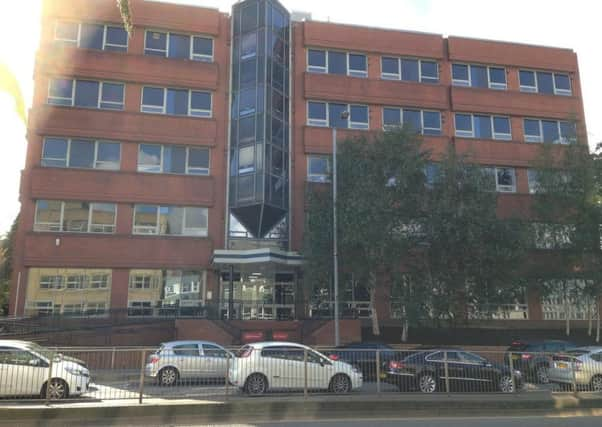Council takes over huge block of flats in Luton to help homeless families in Milton Keynes


The five-storey Unity House was once offices owned by Luton Council, who sold it off to a private developer.
Now converted into sparkling new flats, it has been taken over, lock, stock and barrel by Milton Keynes Council.
Advertisement
Advertisement
They will pay a daily rate to the developer for the guaranteed use of each apartment as temporary homes for the homeless.
The unusual move comes as MK struggles with a 96 per cent increase over the past year in the number of families in costly temporary accommodation.
Many of these families are in B&Bs and hotels as far afield as Birmingham and Wisbech.
And the gross cost to the council is a whopping £7.8m a year, though much of this cash is recovered in housing benefit payments received by the homeless people.
Advertisement
Advertisement
The Luton flats will work out at approximately half the price of B&Bs, said councillor Nigel Long this week.
“It will make a huge difference. I admit it’s not perfect that these flats are in Luton, but it’s certainly better than sending MK families to Wisbech,” he told the Citizen.
“It’s an initiative that makes sense and it is also value for money,” he added.
Unity House, situated close to Luton town centre, boasts 29 studio flats, which will cost the council £30 a night.
Advertisement
Advertisement
There are 32 one bedroom units at £36 a night and 49 two bedroom flats that will be rented out £44 a night.
Some have been previously advertised for sale as “high specification apartments” complete with en suite bathrooms, lift access and private parking.
The value of the open market is believed to up to £200,000 each.
Luton is 22 miles away from and the council will fund taxis to children to schools in Milton Keynes from the Bedfordshire flats .
Advertisement
Advertisement
The cost of policing the apartment block and repairing any damage done by the tenants is not yet known.
The Labour council administration has also this week authorised the conversion of a former Wolverton care home into temporary accommodation for the homeless.
Orchard House in Green Lane was run by the council for elderly people. Built in the 1960s, it has 29 flats available.
The first 20 homeless families moved into the Luton apartment block this week and fifty more will follow shortly.
Advertisement
Advertisement
The remainder of the flats will be ready for use in January 2017, says MK Council. Already the number of people using bed and breakfasts as temporary accommodation has reduced by 22 per cent over the past 12 months - and the council hopes this figure will continue to decrease.
Nigel Long, Labour councillor in charge of adult social care, said: “The situation is dire for homeless families in Milton Keynes.
“We have set out in the council plan our commitment to reducing the use of B&B.”
It is understood Luton Borough Council was also interested in Unity House, which it sold off in 2013.
Advertisement
Advertisement
“Luton also has a big problem with homelessness and the council was interested in using these flats,” said a source. “But they were not quick enough and we and signed the deal.”
A spokesman for Luton Borough Council, said: “This situation is symptomatic of the housing crisis being experienced by many councils.
“Councils continue to work together and keep each other informed.”
Milton Keynes has seen one of the largest increases in homelessness in the UK over the past year.
Advertisement
Advertisement
Latest figures show 530 families – potentially more than 1,500 people – are registered as homeless in the city, compared to 271 at the same time last year.
During the same period Birmingham has seen a 52.5 per cent rise in homelessness, while the highest London borough, Southwark, saw a 50.8 per cent increase.
MK Council’s bill for housing one family in hotel or B&B accommodation for one month is a whopping £10,000.
The main reason for people becoming homeless (31 per cent of cases) is that family or friends have asked them to leave.
Advertisement
Advertisement
Second highest reason - 31 per cent –dddd is eviction by a private landlord.
Some 16 per cent of people become homeless due to violence, while nine per cent say their parents are no longer able to accommodate them.